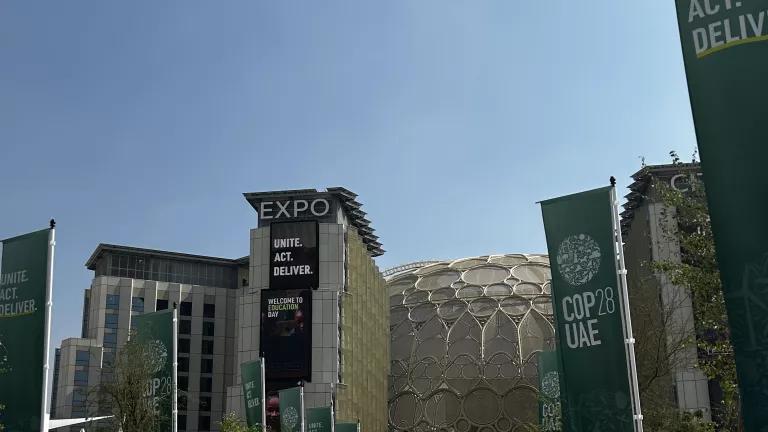Michigan Public Service Commission Primer

With big cases pending and coming at the Michigan Public Service Commission (MPSC) that will dictate your monthly utility bill, how cost-effective home solar is, and how much wind, solar, and energy efficiency there will be in the state, it’s worth all Michiganders getting to know their Public Service Commission.
What Is the Michigan Public Service Commission?
The Michigan Public Service Commission is a regulatory branch of the Government that has three members, not more than two of whom can be members of the same political party. They are appointed by the governor with the advice and consent of the senate for a term of six years. The current Michigan Commissioners are Sally Talberg an independent, Norm Saari a Republican, and newly appointed Dan Scripps, a Democrat. This July, Governor Whitmer will have the opportunity to make another important Commissioner appointment. Though the three Commissioners make the final rulings, they also have nearly 200 staffers working tirelessly to provide analysis and support on the many cases, workshops, and reports.
The mission of the MPSC is to protect the public by ensuring safe, reliable, and accessible energy and telecommunications services are provided at reasonable rates for Michigan residents.
The MPSC gets its authority from the legislature, meaning Michigan laws outline how the Commission can implement, enforce, and rule. For example, Public Act 341 from 2016 says “A provider’s energy waste reduction plan shall be filed with, reviewed by, and approved or rejected by the commission… In determining whether the energy waste reduction plan is reasonable and prudent, the commission shall review each element and consider whether it would reduce the future cost of service for the provider’s customers.” Here we see that laws can be clear and objective in some regards, such as who approves or denies a plan, but more open-ended in others, such as what constitutes “reasonable and prudent.”
Broadly, the MPSC is also vested with the power and jurisdiction to regulate the spending and earning of public utilities in the state. Any proposed rates, fees, charges, refunds, services, operations, etc. done by the utility must first be approved by the Commission. An example of how this can result in both increases and decreases, at the end of March the Commission required DTE to return over 27 million dollars to customers after overcollection.
It is important to also note that the Commissioners are not regulators of emissions nor health impacts since that power has not been legislatively authorized. But, make no mistake, the decisions made at the Commission have huge implications for both.
Why Care About the Michigan Public Service Commission?
Organizations like NRDC are participating at the MPSC because we know that the decisions made here have huge impacts on the everyday lives of Michigan families. They determine how much you can reduce your monthly utility bill, how energy efficiency can maintain affordable housing, and whether you can afford home solar.
Underlying the hope to improve individual homes and lives through outcomes at the Commission, is the question of how to address a system dynamic that simply isn’t working for many vulnerable communities across the state. Some don't have access to internet let alone access to Lansing's decision-making processes.
“The Michigan Public Service Commission makes some of the most important decisions in the climate justice matrix. They decide when coal plants close, the cost of energy, the source and structure of its distribution. We have a right to be a part of these conversations, and to date, EJ communities have not been able to access these halls and board rooms. For us, it's a question of power, people power, and the lack thereof.”
—Michelle Martinez, Michigan Environmental Justice Coalition Statewide Coordinator
To that end, in early April, about 50 people gathered for a community energy training at Focus Hope in Detroit to learn about the Michigan Public Service Commission. The training was hosted by Michigan Energy Efficiency for All partners, with leadership from Michigan Environmental Justice Coalition (MEJC), Soulardarity, National Housing Trust, Ecology Center, and NRDC. The training was created to discuss the MPSC, but more importantly to discuss how to make the Michigan energy advocacy space more equitable and inclusive of the communities that are affected by the policies made there. Commission staff presented an overview of the Commission’s function then NRDC, NHT, MEJC, and Soulardarity presented on the important implications of their work. Discussion followed on community needs around energy and water.
For many, it may be the first time learning about the MPSC and interacting with MPSC staff. For others, they were all too familiar with the consequences of decisions made at the MPSC. Either way, the hope is to start to build a more equitable energy policy and advocacy space for all voices and all levels of knowledge.
How and Why to Follow Along
Many energy cases in Michigan are active or coming soon. NRDC is or will be a party in every one of the below cases.
If you care about your monthly utility bill, home solar, or infrastructure spending, you may be interested in: DTE Rate Case.
If you care about the long term vision and path the utilities are pursuing with outlines of how much renewables, energy efficiency, gas, and coal plant retirement schedule, you may be interested in: Consumers Integrated Resource Plan and DTE Integrated Resource Plan.
If you care about lowering your monthly utility bill and making your home more comfortable and energy efficient, you may be interested in: DTE and Consumers Energy Waste Reduction Plans. Coming this summer in July and August. No case site has been created yet.




